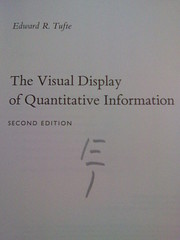Two pieces. One was first performed even before it was fully written, with the composer partly filling in the parts as he played. The other solid in style, but had the misfortune of opening alongside a piece that incited great and vigorous argument, and therefore went into obscurity. Clearly the outcomes are not related to the work and effort that went into them, but somewhere there is something else.
I have two students who are presenting their plans for their ongoing efforts this week. Both are engaged in a creative work, building on what has been done before, moving in directions that are unknown. Along the way they will be questioned, their beliefs and assumptions challenged, their thinking sharpened. And both do so with hopes that they are building something of enduring value (in addition to completing a project!)
But realistically, not everything is of such value. Looking at concert music, it is almost unfair comparing pieces from centuries past to music from the past century. But it is not because of the composer, but the mere fact that pieces are still played means they survived and were found worthy of remaining a part of the repertoire, while younger pieces have not finished this winnowing process. And with my students (and myself for that matter), it is not just the effort that goes into the work, but the many decisions and choices of those who come next, when they consider what is worth commenting on, and worth building upon, that will ultimately determine any enduring value in what we create.
But does that mean that the work is only of value because it is known or because others build upon it? In a sense, because what we are doing is a creative work, its value will be in part how it effects conversation in our field (measured by people choosing to react to it and build up on it or take it in new directions.) But there is more. Henri Poincare wrote about what scientists study. It is not just that the study of our world is useful (although it is), but what we study is beautiful, and in that captures our attention, and rewards us for efforts beyond the remuneration we receive. And I'm looking forward to the years to come, that they may be devoted to efforts that I can say that I delight in them, and uncover both the beautiful and useful, whether enduring or obscure.
